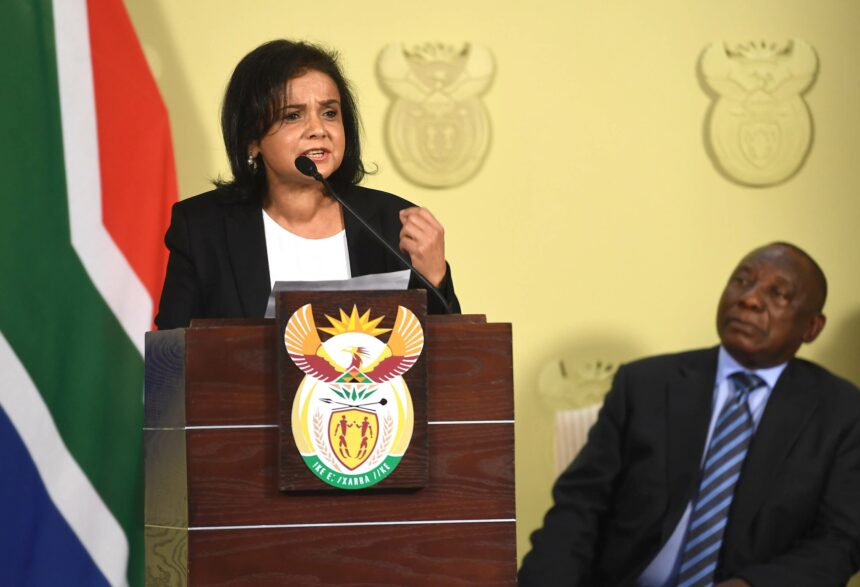Shamila Batohi, the National Director of Public Prosecutions, has recently made a public appeal to heads of courts to assign judges with the necessary skills and experience to hear state capture cases. In a lecture in Cape Town, she emphasized the importance of having judges who are well-equipped to handle complex and highly specialized cases related to state capture.
Batohi highlighted the fact that it is crucial for judges to have the expertise and skills required to deal with such cases effectively. She stressed the importance of allocating judges who have the necessary experience to ensure that justice is served in a fair and efficient manner.
The issue of assigning judges with the right qualifications came to light in the Nulane Investments fraud, corruption, and money-laundering trial, where an acting judge was assigned to the case. This led to concerns about the handling of the trial and raised questions about the judiciary’s ability to handle state capture corruption cases.
In another case, involving former Eskom chief executive Matshela Koko, the state’s lack of specialized skills in data processing proved to be a stumbling block. The outcome of these trials, along with the striking off the roll of the money-laundering case against Koko, has raised doubts about the state’s ability to prosecute state capture corruption effectively.
Batohi also raised concerns about the judiciary’s role in state capture cases, emphasizing the need for an independent judiciary to ensure that cases move swiftly through the court process while maintaining a fair trial for all parties involved. She highlighted the importance of addressing state capture as a government priority and called for the firm resolve of an independent judiciary to uphold justice in these cases.
Overall, Batohi’s appeal underscores the importance of having judges with the necessary expertise and experience to handle state capture cases effectively. By ensuring that the judiciary is well-equipped to deal with these complex cases, we can ensure that justice is served and that corruption is effectively prosecuted. The people of our country are indeed the victims of the pervasive corruption that plagues our society. National Director of Public Prosecutions, Shamila Batohi, has highlighted the challenges faced by the National Prosecuting Authority (NPA) in bringing corrupt individuals to justice. She pointed out the use of delaying tactics such as frivolous interlocutory applications by defence lawyers, which contribute to the slow progress of corruption trials.
Batohi emphasized that while there is immense public pressure to secure convictions in high-profile state capture cases, these represent only a small fraction of the cases prosecuted by the NPA. She highlighted the NPA’s commitment to addressing all forms of crime in South Africa, including violent offenses that instill fear in communities. House invasions, in particular, have been identified as a major driver of this fear.
Despite the challenges faced by prosecutors, Batohi revealed that the NPA maintains a 77% conviction rate in over 3,000 murder prosecutions annually. However, she clarified that this percentage reflects cases where police investigations have led to dockets ready for court, not the total number of homicides committed.
Batohi defended the NPA’s work in combating crime in a hostile environment, emphasizing the dedication of prosecutors in addressing the twin crises of violent crime and corruption. She criticized the negative portrayal of the NPA in the media, urging for a more informed and evidence-based perspective on the entity’s efforts to uphold the rule of law.
It is evident that the NPA plays a crucial role in delivering justice for victims of crime in South Africa. Despite facing numerous challenges, the NPA remains committed to its mandate of prosecuting offenders and upholding the principles of justice. It is essential for the public to recognize and support the vital work carried out by the NPA in fighting crime and corruption in our country.







